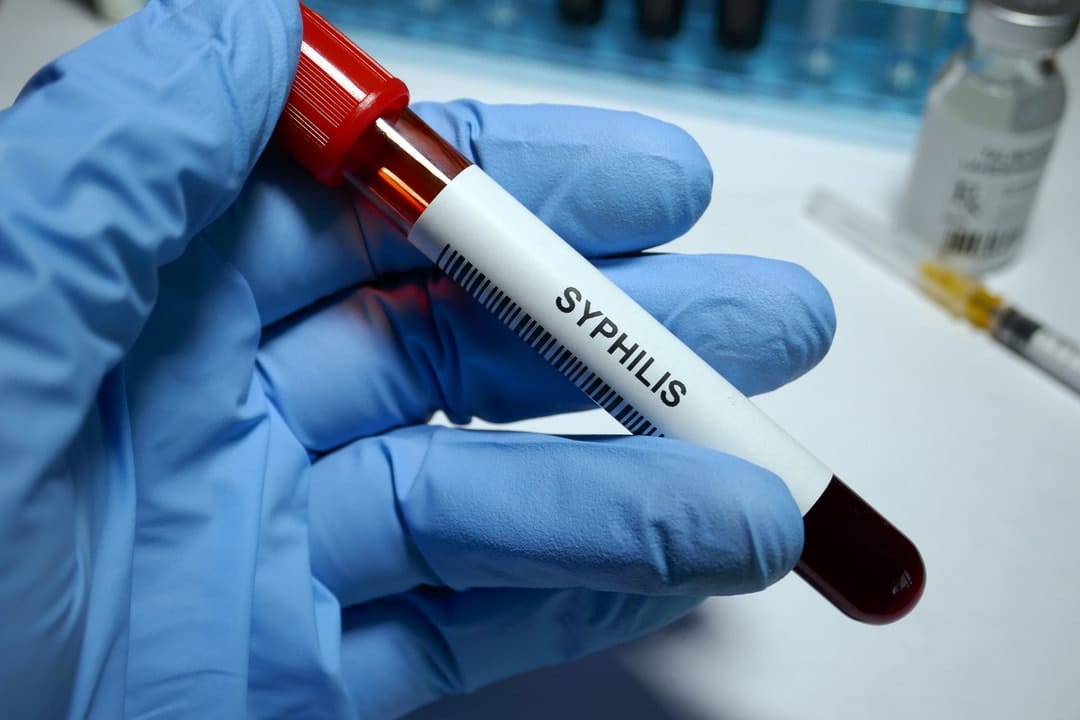
Eminent Monash University Professor Kit Fairley AO says Melbourne and greater Victoria are in the grips of sexual health “crisis” fuelled by huge increases in gonorrhoea and syphilis infections, and inadequate access to health services.
Syphilis has increased alarmingly in Victoria over the past decade to the point where it no longer only occurs in gay men, but also affects heterosexual women and unborn babies. Gonorrhoea cases in Melbourne have jumped more than 1000 per cent in 10 years.
“For the first time in more than a decade, babies with syphilis are dying,” Professor Fairley says. “We’re reaching a new epidemic, and we’re at a crossroads. Women are becoming infertile from sexually transmitted infections [STIs], and yet Victoria has only one major publicly funded sexual health service for a population of almost six million in Victoria.
“I’m not saying that if a whole lot of new services are provided, all the STIs will disappear overnight,” he says. “What I’m saying is that we’re entering a new and unique period of STI control without the most powerful measure – accessible healthcare – operating properly.”

Professor Fairley is with the Central Clinical School and School of Public Health and Preventive Medicine at Monash. He’s also editor of the medical journal Sexual Health. Last year, Lancet described him as a “pioneer in STI research”.
“Humans are programmed to like two things,” he says. “Eating, and sex. It’s not the person’s fault if they get fat or catch an STI like HIV or syphilis. All those things are determined by decisions governments make. You can’t stop people from eating and having sex. But if you have the right healthcare and other structures around those things, you keep problems like obesity and infections at bay.”
While Sydney and greater New South Wales have 50 per cent more gay men, it has a 50 per cent lower rate of syphilis infection. NSW has 37 publicly funded sexual health clinics, including 10 in Sydney. Professor Fairley’s clinic in Melbourne is the largest in Australia, but is struggling to cope with demand. Consultations have quadrupled in 20 years, with, he says, no comparable increase in resources.
Early treatment is vital
Early treatment – from greater public awareness of symptoms – is the key, he says. “If syphilis is treated within four to five days of a person developing an ulcer, it might be infectious for two or three weeks. But if it’s not treated it’s infectious for a year. So instead of passing it onto one person, it can be passed on to 10.”
Gonorrhoea infections treated at the Melbourne clinic have risen from 53 in 2001 to 2333 last year. The infection may become resistant to antibiotics. Syphilis can cause serious complications, including impaired hearing and vision, and congenital syphilis can either kill or disable babies.

Professor Fairley uses two analogies in describing the sexual health crisis: pregnancy and obesity.
“If you make people aware of contraception methods and make them easy to get and not expensive, then people won’t get pregnant. They’ll still have sex because that’s what people like to do, but they won’t get pregnant.
“It’s the same with obesity. In 1997, 20 per cent of 18-year-olds in Australia were obese. Now, around 50 per cent of them are obese. People don’t change, their appetites don’t change, but governments can allow environments, like obesogenic environments, which allow them to get fat.”
“For the first time in more than a decade, babies with syphilis are dying.”
The Victorian state government began a review into the state’s sexual health services in September 2018. It released a final report in October this year, finding the state needed “a stronger statewide clinical sexual health system architecture to meet population need and service demand”. It identified that a “disproportionate burden” of sexually transmitted infections hit the state’s Aboriginal and Torres State Islanders, gay and bisexual men, culturally and linguistically diverse communities, those ineligible for Medicare, and those living with HIV.
The report says the state government will partner with the “private, government and non-government sector and affected communities” to ensure Victorians experience “optimal sexual health” with access to “high quality and inclusive care”.
'Blame culture' a contributing factor
Professor Fairley says the idea of “personal responsibility” in things such as weight gain and sexually transmitted infections is outdated. He says Australia tends to have a “blame culture” where, if people become obese or catch sexually transmitted infections, it’s their fault.
He cites Denmark as part of the “intelligent world” with the “gold standard where the blame card is not used, sexual health is funded adequately, and GP and sexual health services are linked. The same initial increase in syphilis happened in Denmark as it did in Australia from about the year 2000, but Denmark prevented the jump from men to women.
“The outdated message in Australia relies too heavily on condoms and messages to stop having so many sexual partners, but all the studies show condom use is hard to change, and you can’t get people to have fewer partners.

“Condom use in gay male communities was fairly stable until just the last year or so when it has dropped sharply in tandem with the rise in pre-exposure prophylaxis, or Prep, a daily pill for people who don’t have HIV but are very high-risk. The pill prevents the HIV.”
Professor Fairley and Monash Central Clinical School researchers were recently awarded more than $6m in National Health and Medical Research Council (NRHMC) grants to further research STIs. Associate Professor Catriona Bradshaw will research an STI superbug called Mycoplasma genitalium, while Professor Fairley and Dr Eric Chow will oversee projects researching non-condom-based prevention of STIs, including self-examination for gay men, and Listerine mouthwash as an effective control for gonorrhoea.
“By far the most powerful STI prevention is providing access to health services,” he says. “It becomes a vicious cycle – if you can’t treat infections they get passed onto more people, and you can’t see them and it gets out of control.”
Times have changed
Professor Fairley says the sexual landscape has changed dramatically in the past 20 years, and healthcare hasn’t followed. Mobile apps have “changed the way gay men mix with one another”, leading to more contact in “sexual networks” between two men who are both “high-risk”. He also says international students in Melbourne are a vulnerable group because of poor access to healthcare. The clinic in Melbourne has signs in Korean and Chinese as well as English.
“My job,” he says, “is to tell the truth about what I know, and this crisis is the truth. Most people in public health know the best method of controlling anything is accessible health services. It’s a complicated concept, and I’m not sure the politicians have been briefed about its importance.”





